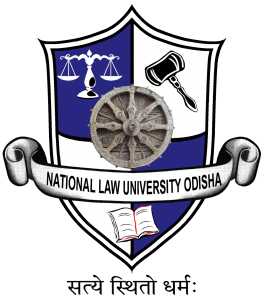- The National Law University of Odisha’s Legal Aid Society is a student-run committee that was established in 2012. The Society’s functions are carried out with the express purpose of ensuring that the poor and marginalised parts of the population have access to justice, especially through the dissemination of legal awareness and education in educational institutions and underprivileged communities.
- The concept of community outreach has been of paramount importance to the committee, which it has successfully accomplished through the integration of students into the community, the organisation of legal literacy camps, social mobilisation camps, and the conducting of socio-legal surveys relating to a wide range of contemporary issues such as domestic violence, consumer rights, dowry prohibition, land rights, under trial prisoners, and many other related areas.
- The Committee’s goals are to focus on social issues and expand pro bono legal services. The committee is more concerned with getting down to business and doing real work as a lawyer.
- Individuals with impeccable legal knowledge, according to the Society, should not dwell in ivory towers but should instead respond to social realities and demands. To promote this idea, the Blog intends to empower authors to go into the legal world and shape discussions regarding legal assistance that go beyond social gremlins, expanding their horizons to include fledgling laws in India as well as abroad countries through a careful selection process.
- By fostering the integration of information and best practises from across academia and the research community, the Blog aspires to become a lighthouse of legal education.
- On November 26, 1949, the Constituent Assembly adopted the Constitution of India, and it came into effect on January 26, 1950. While January 26 is celebrated as Republic Day, since 2015, November 26 has been observed as the Constitution Day of India or Samvidhan Divas.
The Legal Aid Society on the occasion of Constitution Day of India invites submissions on the topics which may revolve around the following themes.
- Article 39A of the Constitution: Free Legal Aid
- The Right to Information
- The Public Interest Litigation
Sub-themes may include, but are not limited to, the Scope of Legislative Amendments, Judicial Trends, Legal Challenges, Comparative Analysis, Suggestions, and Recommendations.
The sub-themes are organised in a directory format, and authors are recommended not to limit their views.
Submission Requirements
- Submissions are accepted on a rolling basis on the Blog. The contributions must be unpublished and must be the author’s own work (s). It is permissible for up to two authors to collaborate on a paper.
- Please send all submissions to nluolas@gmail.com with the subject Blog in the subject line. Submission: “Title,” only in a Microsoft Office Word-compatible format (.doc or.docx), no PDFs. The writers’ identities must not be revealed in any way in the word document that is submitted.
- The word count for the submission must be between 1000 and 1500 words. Longer posts may be accepted and published in sections at the editors’ discretion. The word limit does not include endnotes (if any). The endnote citation format must be consistent, preferably using the most recent edition of the Bluebook.
- The references must be in the form of hyperlinks that point to keywords and phrases in the submission’s body. If links to the case are accessible for Indian case law, the authors may offer them.
- The manuscript must be formatted in Times New Roman font, size 12, with 1.5 line spacing and justified. The font size is increased to ten with a one-line gap for the endnotes, although the font remains the same.
- Posts that are analytical are favoured above those that are descriptive. Relevance, quality, structure, logic, writing style, and originality will all be taken into account when deciding whether or not to publish a post.
- A brief bio of the author(s) and the name of the institution to which they are attached must be included in the email’s body. Submissions from students, academics, and practitioners are all welcome. A paragraph or two summarising the manuscript submitted must be included in the email.
- A submission may be cross-posted on other platforms once it has been published on the Legal Aid Corner NLUO. The phrase ‘First posted on the Legal Aid Corner NLUO’ must be on the cross-post, along with a link to the post.
Relevant Link
Facebook Comments
 685
685

